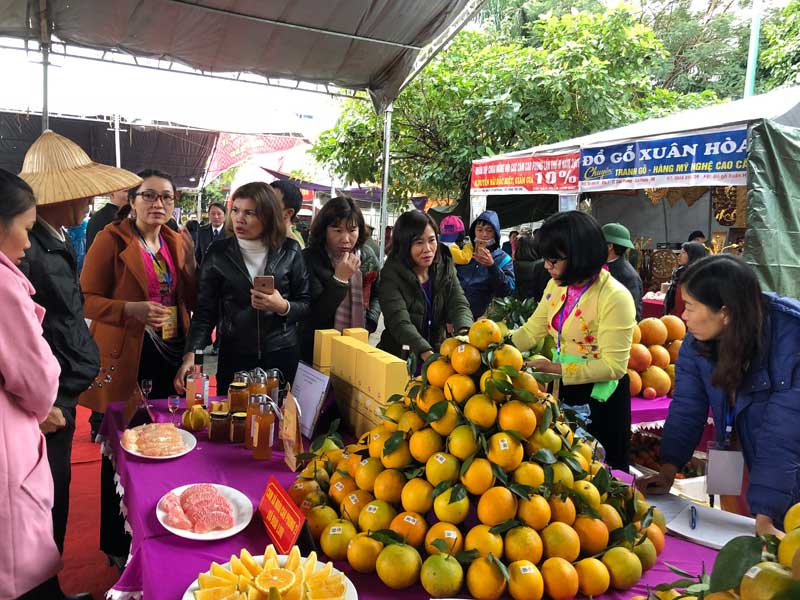


In recent
years, the area of citrus fruits in the province has increased to 9,700
hectares in 2018 from 1,976 hectares in 2013, yielding 123,000 tonnes.
The fruits are mainly grown in nine out of the
11 districts and city, including oranges in Cao Phong, Lac Thuy, Kim Boi and
Lac Son districts, and grapefruits in Tan Lac and Yen Thuy districts. In Cao
Phong alone, the area of citrus fruits covers over 3,000 hectares, including
1,300 ha ready for harvest with an estimated output of 36,000 tonnes, up 3,000
tonnes against 2017. Lac Thuy district has 1,045 hectares of these fruits,
including 400 hectares ready for harvest, yielding over 8,000 tonnes.

To protect the brand of citrus fruits, the local
agriculture and rural development sector has applied a number of measures in
recent years, including the control of the quality of varieties. Unscheduled and
periodical inspections are carried out annually to prevent low-quality
agricultural supplies, especially fake fertiliser and unsafe seedlings from
entering the local market.
The provincial plantation and plant protection division
said it has conducted inspections over 500 establishments trading agricultural
supplies on the use of pesticides, production procedures, and breeding sales.
They found no violation.
Since 2015, the province has successfully built
geographical indicators for Cao Phong, Lac Thuy orange and Tan Lac red-flesh
grapefruit. To protect the brand of the fruits, local gardeners have applied
science technology into production, meeting requirements on fruit hygiene and
safety. In Cao Phong district, about 800 hectares of oranges were certified
with Vietnamese Good Agricultural Practices (VietGAP), labelled with trace of
origin and packaged to prevent counterfeit products. Meanwhile, in Tan Lac
district, some 52 hectares of red-flesh grapefruits received VietGAP
certification./.